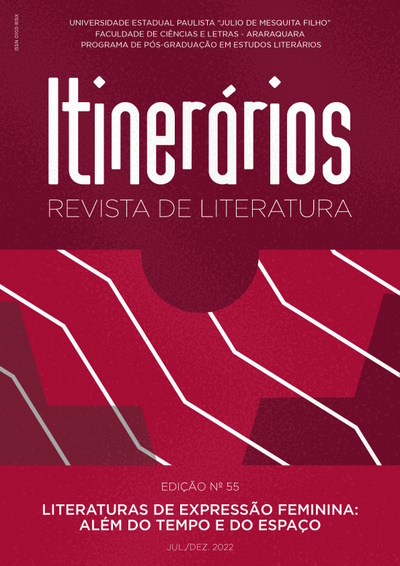Figurativization of time in “Idades cidades divindades” (2016), by Mia Couto
DOI:
https://doi.org/10.58943/irl.v1i55.16448Keywords:
Structuring element, Figurativization, Function, Mia Couto, TimeAbstract
The Mozambican writer Mia Couto has become one of the most prominent in the literary arena. This writer, whose work displays an idiosyncratic style of his own, has produced short stories, novels, chronicles, and poetry. His work has been published and translated into several languages, such as Italian and French. This research aims at examining the figurativization of time in Mia Couto’s poetry, in the book “Ages, Cities, Deities” (2016). Specifically, it intends to comprehend the linguistic-semantic aspects of temporality and its effects on the construction of meaning in both figurative and thematic poems, as well as it intends to verify which functions are carried out by such temporality in Mia Couto’s work. The methodological framework was both bibliographic and qualitative, once we have focused on the relations engendered by figurativization. The results have shown that the category of time in Mia Couto’s poetry either emerges as a structure or it is merely mentioned. These occurrences reveal a basic function, the structuring one, that is to say, time is managed by other themes, such as love, sex, and the being in the world. This investigation is in line with the discursive semiotics, mainly with the works of Bertrand (2003) and Fiorin (2010).
Downloads
Published
Issue
Section
License
Os manuscritos aceitos e publicados são de propriedade da revista Itinerários. É vedada a submissão integral ou parcial do manuscrito a qualquer outro periódico. A responsabilidade do conteúdo dos artigos é exclusiva dos autores. É vedada a tradução para outro idioma sem a autorização escrita do Editor ouvida a Comissão Editorial.

